It is essential to understand at what stage of dementia does incontinence occur to prepare accordingly (in advance).
Up to 70% of people with dementia develop incontinence (urinating or defecating involuntarily).
Contents
What Stage of Dementia is Incontinence?
It’s especially common in later stages of dementia due to an assortment of reasons.
Some are directly related to dementia, while others aren’t. Physical changes that occur with other conditions or with the aging process also can contribute.
Why do People with Dementia Become Incontinent?

People with dementia may become incontinent for a variety of reasons – and often, for several at once.
Stress Incontinence
Many older women experience “stress incontinence.”
When the weakened bladder muscles are “stressed” by a sneeze or a laugh, they may leak small amounts of urine.
Urge Incontinence
Urge incontinence is a common condition among elders, characterized by a sudden and intense need to urinate, followed by the loss of a large amount of urine.
Functional Incontinence
Mobility challenges can make it hard to get to the toilet on time.
Difficulty Managing Clothing
Unzipping or unbuttoning pants can become a challenge due to various reasons, including arthritis or cognitive changes.
Communication Deficits
People with dementia may be unable to communicate the need to use the restroom.
Cognitive Changes
A person may forget how to complete the sequence of events needed to successfully remove clothing and use the toilet.
The brain may become less able to recognize the signal from the body that it needs the bathroom.
Difficulty finding the bathroom, recognizing the toilet, or comprehending how to use it can present a major barrier.
Incontinence Products
| Product | Features |  |
|
|---|---|---|---|
 | Prevail Air plus Daily Brief | Soft & breathable Ultimate absorbency Pack of 4 (18 count) Night & day Skin smart Omni-odor guard | |
 | Wellness Superio Series BriefsBrand: Unique Wellness | Fully Absorb up to 2.6L Wide absorbent core Resealable landing zone for easy adjustment White with a nylon based crinkle-free plastic Value for money Stays dry for 8+ hours Award winner/ Featured on Discovery Channel | |
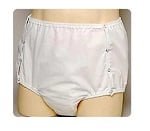 | One Piece Waterproof Snap-on Diaper Cover BriefBrand: Salk | Lightweight Softness of cloth 100% waterproof Polyester/urethane outer Brushed polyester inner Super-absorbent pad 3-ply inner layer Waterproof outer layer Washable | |
 | SOSecure Containment Swim BriefBrand: Discovery Trekking Outfitters | Discreet Swimming Undergarment Durable Polyurethane Fabric Fleece Lining Hook and Loop Closure (Easy) Elastic Waist & Legs Machine Washable Latex Free | |
 | Prevail Overnight Bladder Control PadsBrand: First Quality | For Women Dri-Fit cotton enhanced QUICK WICK Layer and cotton Odor Guard | |
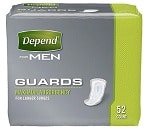 | Depend Men GuardsBrand: Kimberly Clark | Adhesive strips to hold guard in place Individually wrapped Discreet- pocket-sized pouch Easy carrying and disposal Contoured design Cup-shaped protection for men One size fits most | |
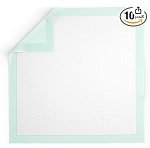 | Medline Incontinence Bed Pads | Underpads 50 count 36"X36" Heavy absorbancy Polypropylene backing (protects against leakage & resists melting) Ideal for overnight use | |
 | Inspire Washable and Reusable Incontinence Chair or Bed Pads | Washable/reusable Solves incontinence problems Safely absorbs & lock in liquids Soft & comfortable Non-irritating | |
 | Bariatric 2X-Large UnderwearBrand: Attends | Improved side panels (better comfort & fit) Acquisition layer Super absorbent polymer Tear-away sides (easy removal) Looks & feels like regular underwear Bag of 12 | |
 | Depend Mens Maximum Absorbency UnderwearBrand: Kimberly Clark | Outstanding protection Improved underwear-like fit Brief-like leg opening Heavy incontinence Soft, quiet, breathable material Conforms to the body | |
 | AIRCUTE Washable Absorbent Urine Incontinence Underwear for Women | 6 layers High waist Absorbent & leakproof Washable Breathable Comfortable | |
 | Prevail Adult WashclothBrand: First Quality | Super strong & soft fabric (12" x 8") Stay-open & easy-close lid Press 'N' Pull lid Super strong soft fabric Aloe & lanolin Lid closes tightly |
How to Minimize Urinary Incontinence
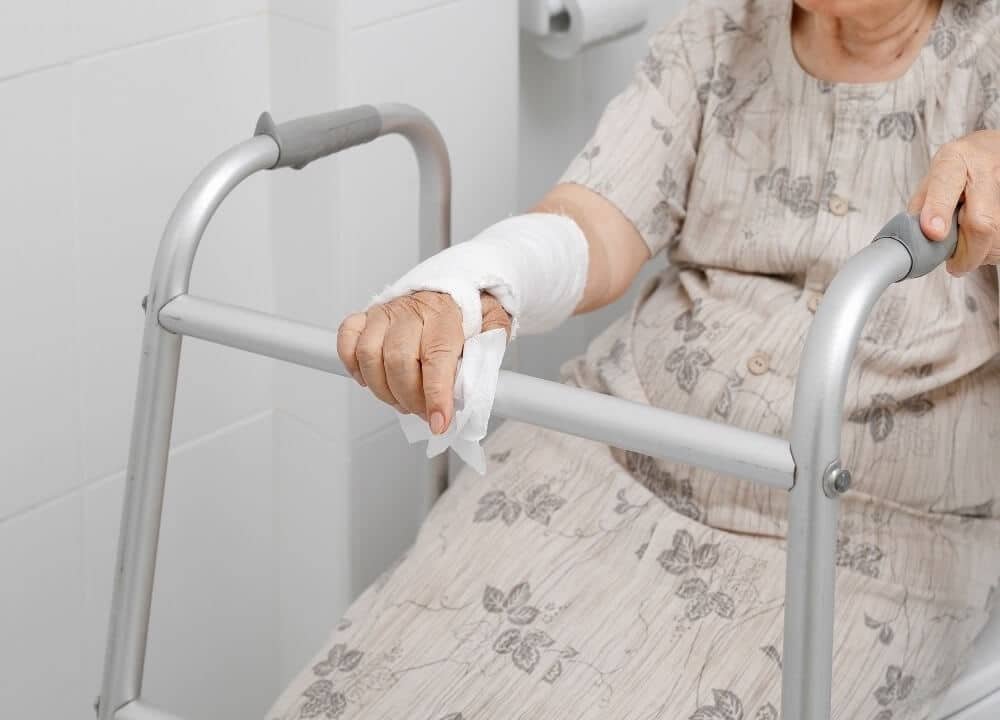
There are many ways to minimize urinary incontinence. The solution for each individual will depend on the cause, or causes, in their unique case.
A multi-pronged approach, tailor-fit to their situation, will likely be most effective.
Locate the Toilet
Placing signs, or a trail of masking tape on the floor, to help the person find the toilet may help.
Sometimes pictures are easier for the person to understand than written words.
Keep the light on in the bathroom, or place a portable commode, or urinal, at the bedside to help someone who has trouble finding the bathroom during the night.
Replace Troublesome Clothing
Elastic waistbands can make toileting easier for those who have difficulty managing buttons or zippers.
Watch for Non-Verbal Clues
Pay attention to the person’s non-verbal communication. Even if they can’t always articulate that they need the bathroom, people often show outward behavioral signs.
Common signs of needing the restroom include:
- Fidgeting with or removing clothing
- Pacing, wandering or going in and out of different rooms
- Peering around frantically
Toileting Plan
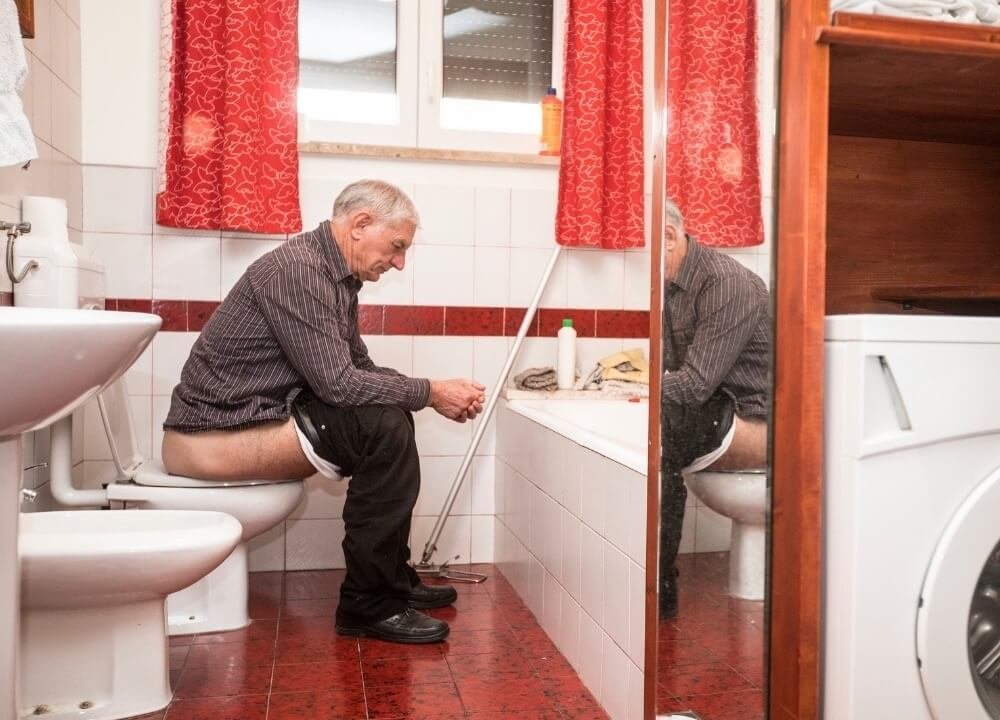
One of the best ways to minimize incontinence is to develop a personalized toileting plan based on the person’s needs.
Initially, the “plan” may be as simple and informal as reminding the person to use the bathroom before leaving the house.
Over time, the frequency and amount of oversight or assistance may increase.
Pay attention to when the person usually needs the restroom and try to anticipate it.
Remind or assist them regularly just before they are likely to need it.
Example:
Larry is a senior with middle-stage Alzheimer’s Disease. He has difficulty recognizing when he needs to urinate, and usually doesn’t get to the toilet on time. He wears incontinent briefs, which used to be wet almost every time he went to the bathroom.
His wife, Roberta, used to ask him if he needed the bathroom, but he would always tell her “no”. Now, however, she doesn’t ask him. Instead, she walks with him to the restroom regularly – when he wakes up, before each meal, after dinner and before bed.
She also wakes him up around midnight and again around 5:00 a.m. If she doesn’t wake him up he will usually wake up on his own around 1:00 and 6:00 in a rush to find the bathroom. Not only is this upsetting to him, it is unsafe because he won’t slow down enough to use his walker.
With this plan, Larry’s brief has rarely been wet at all over the past several months. However, last week he started taking a new diuretic medication to reduce the swelling in his legs, and he immediately started to have accidents again. When Larry went to the toilet before lunch his incontinent brief was soaked.
After a few days, Roberta was able to adjust the plan to the new needs. She started walking Larry to use the toilet after breakfast, and again around 10:30. Larry is back to enjoying accident-free days at this time.
The Importance of Sleep
It’s worth thinking twice about waking up someone with dementia to prevent overnight incontinence. Sleep deprivation can seriously impact both physical and mental health.
It can also worsen the symptoms of dementia.
Depending on the situation, it may be worth considering a quality night brief instead.
These special briefs are designed for extended wear and can absorb large amounts of urine, keeping it away from the person’s skin.
Regular briefs should not be worn if they are wet. Extremely damaging to skin, it also increases the risk of urinary tract infections and pressure ulcers.
Keep Drinking
Some elders avoid drinking fluids because they are afraid of having to urinate more or having an accident.
However, dehydration is a serious concern for elders. It can worsen confusion, contribute to falls, or lead to a medical emergency.
Elders with dementia tend to be at especially high risk for dehydration.
Caffeine and certain medications can cause an increase in urination, which can contribute to both incontinence and dehydration. In general, it’s a good idea to avoid caffeine and to take the diuretic medication in the early waking hours.
Always discuss medications, including what time they are taken, with the person’s doctor.
Talk to the Doctor
There are medications for “overactive bladder”, but beware: this is not the cause of most incontinence in dementia.
Furthermore, some of these medications can worsen dementia symptoms significantly.
There are also other potential treatments for incontinence depending on its cause. Discuss all medications and any concerns about incontinence with the person’s doctor.
Watch for Urinary Tract Infections
Sudden onset or increase in incontinence can be a sign of a medical condition, such as a urinary tract infection.
UTI’s can greatly impact the health and behavior of a person with dementia. Other signs that may indicate an infection could include:
- Fever
- Increased confusion
- Changes in behavior
- Dark or odorous urine
- Discomfort with urination
- Low back pain
If incontinence is new or sudden, talk with the person’s doctor.






